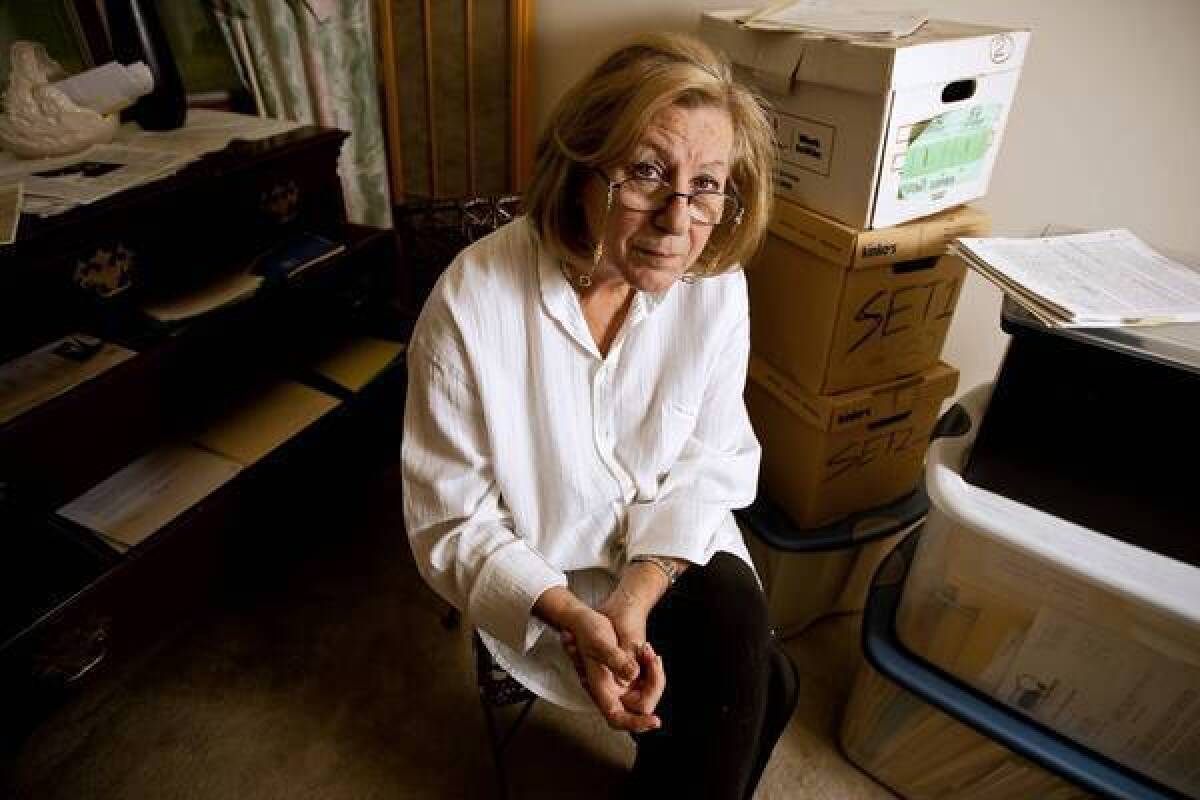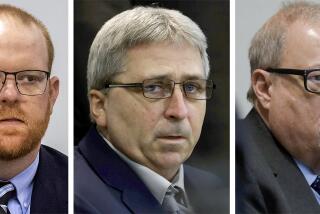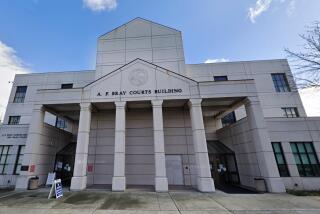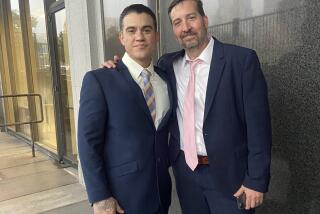Man in prison for triple murder should be released, magistrate says

SAN FRANCISCO — A prisoner serving life without parole for a triple murder arson should be released because his lawyer failed to defend him adequately in a “fundamentally unfair” trial, a federal magistrate has recommended.
The magistrate’s 93-page decision followed a ruling last year that George Souliotes, 72, had proved “actual innocence” and that no reasonable juror would have convicted him given the state of the evidence today.
Souliotes had to prove his innocence before challenging his conviction because his former lawyer missed a legal deadline in filing his appeal. With that hurdle passed, U.S. Magistrate Michael J. Seng ruled this week that Souliotes should be released because he received incompetent representation.
Souliotes, a Greek immigrant, has been behind bars for 16 years for the killings of Michelle Jones, 31, his tenant, and her children, Daniel Jones Jr., 8, and Amanda, 3. Souliotes had been in the process of evicting the Jones family when a fire erupted in the middle of the night, trapping the three in the small Modesto house Souliotes owned.
Prosecutors, who had sought the death penalty for Souliotes, now concede that scientific findings pointing to arson were inaccurate. They also admit they cannot prove the 1997 house fire was deliberately set.
Souliotes’ lawyers filed a motion late Friday asking Seng to release Souliotes immediately, before a final decision by a district judge, who must approve Seng’s recommendation. The lawyers cited Souliotes’ poor health — diabetes, high blood pressure and an ailing hip.
Souliotes “had no criminal record before the alleged crimes for which he was wrongly convicted, has no record of prison discipline, and at 72 years of age poses no threat to society,” his lawyers argued.
State Atty. Gen. Kamala D. Harris, however, has fought to keep Souliotes in prison. Deputy Atty. Gen. Kathleen A. McKenna said Friday she disagreed with the magistrate’s findings and planned to object.
A decision by the magistrate on whether to release Souliotes before a federal judge’s approval could take weeks, and approval by a federal judge could take months.
In ruling for Souliotes, Seng said the lawyer’s “unprofessional” performance at trial severely undermined the court’s confidence in the verdict.
During Souliotes’ first trial, the defense called several witnesses, including an expert who testified the fire was accidental and another who cast doubt on the credibility of an eyewitness. The jury hung 11-1 for guilt.
During the second trial, Souliotes’ defense lawyer promised jurors they would hear from certain witnesses and then failed to call them, resting after the prosecution concluded its presentation and never explaining to jurors why the witnesses were not summoned.
A defense lawyer’s “strategic decisions are given deference,” Seng wrote. But a lawyer’s “ ‘bold’ trial strategy of presenting no witnesses and no defense … cannot be justified.”
Souliotes’ trial lawyer has said that he did not call back a scientific expert who testified for Souliotes in the first trial because he was a poor communicator. That expert testified the fire was started by a leaky gas stove. Seng said the defense should have better prepared the expert or called a different one.
“It is difficult to understand how, in a capital murder case so dependent on scientific evidence, where a jury hung after hearing a qualified defense expert with poor demeanor, counsel could determine that presenting no expert witness would result in a better outcome,” Seng wrote.
Seng cited the lawyer’s declaration that he “had embarked on an all-or-nothing strategy dictated by Mr. Souliotes’ absolute insistence that he was innocent.” But instead of presenting a defense based on evidence of innocence, the lawyer persuaded his client to rely on a strategy of simply showing the prosecution had not proved its case, Seng said.
Aleka Pantazis, 65, Souliotes’ sister, said she worries that her brother might die before his release. “The most courageous thing for the state to do is to realize that it has been a mistake,” said Pantazis, a Glendale resident. “They have to let it go.”
Seng held a three-day hearing last year and concluded Souliotes had presented sufficient evidence of innocence to pursue his appeal. Chief U.S. District Judge Anthony W. Ishii upheld Seng’s findings and urged the rest of the case to be heard expeditiously.
More to Read
Start your day right
Sign up for Essential California for news, features and recommendations from the L.A. Times and beyond in your inbox six days a week.
You may occasionally receive promotional content from the Los Angeles Times.






